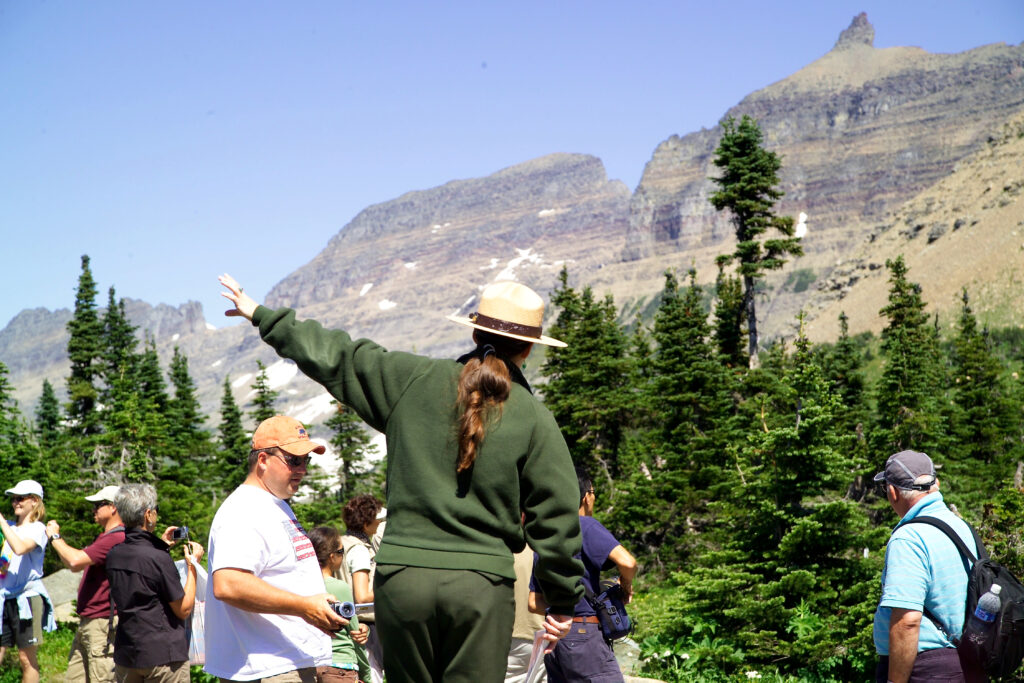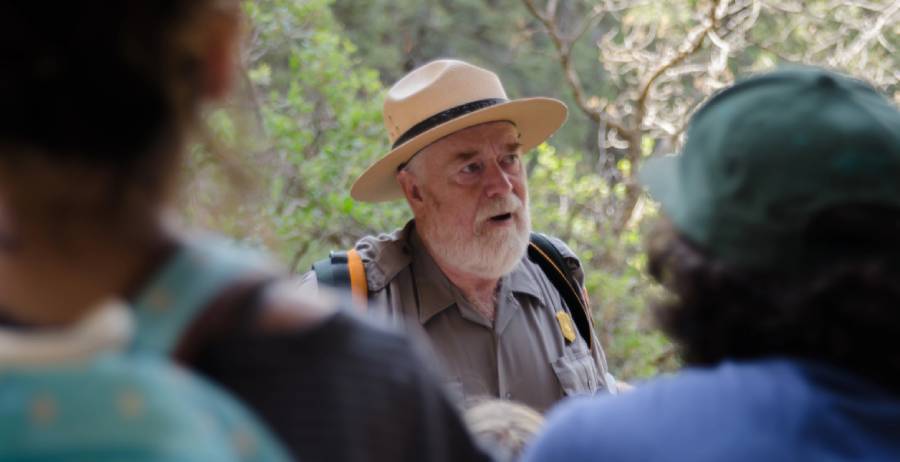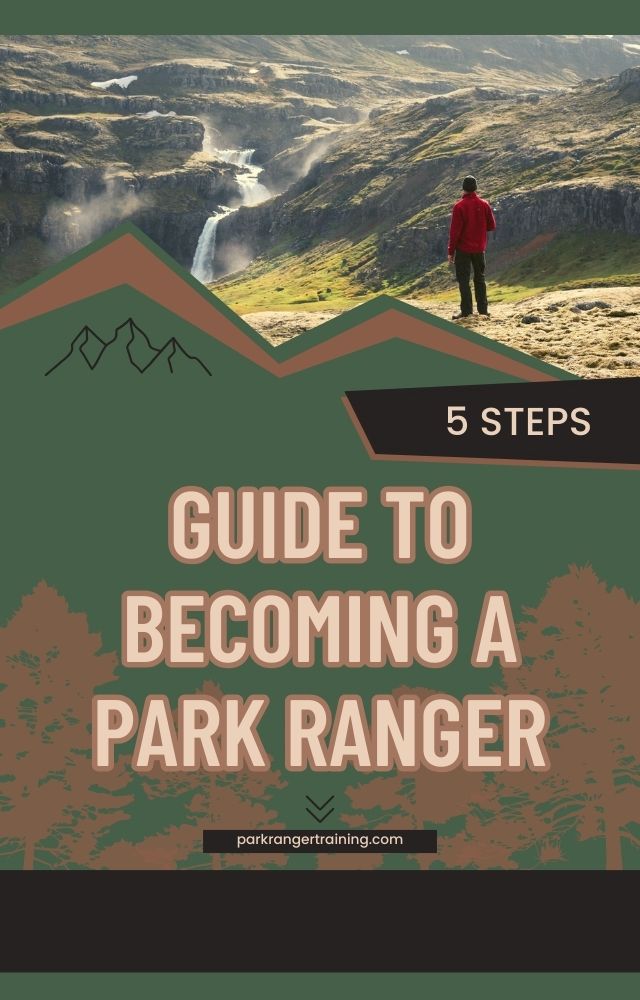If you’re interested in becoming a park ranger, be prepared for a competitive journey. Rescue operations, environmental education, and resource protection are just a few of the tasks that park ranger positions entail. While the path is challenging, the reward of preserving natural landscapes makes it worthwhile. The average salary for park rangers varies by location and experience, reflecting the commitment required for this unique career.
Those with determination and a passion for the outdoors have an advantage. Becoming a park ranger requires a blend of education, physical fitness, and a strong sense of stewardship. With the right preparation, you can turn your dream of working in the great outdoors into a reality, safeguarding our parks for generations to come.
Understanding the Role of a Park Ranger
As a park ranger, you’ll wear many hats, from educator to game warden, each demanding a diverse skill set to effectively manage and protect our nation’s parks.
Core Responsibilities and Daily Tasks
Your daily grind as a park ranger includes patrolling campgrounds, leading educational programs, and maintaining trails. You’ll be the frontline in preserving natural resources and ensuring visitor safety.
Variety in the Field: Different Types of Park Rangers
Park ranger duties are diverse, from law enforcement and firefighting to teaching the public about wildlife and plant populations. You’ll protect nature, manage litter and climate impact, and handle permit and equipment needs, all while maintaining the grounds of our precious county parks.
• Seasonal Park Ranger: A Gateway to Full-Time Opportunities
Starting as a seasonal park ranger can be a smart move. With a college degree, you can seize entry-level seasonal positions, often in seasonal maintenance. These roles offer aspiring park rangers invaluable volunteer opportunities and a foot in the door to full-time work.
• The Contrast Between Interpretive and Law Enforcement Rangers
Interpretive rangers focus on educating park visitors, while those with a bachelor of science may gravitate towards law enforcement roles, balancing distinct park ranger duties tailored to their expertise.

Educational Pathways to Becoming a Park Ranger
The Office of Personnel Management outlines the qualifications for game warden roles, offering guidance for prospective park rangers on their educational journey.
High School Preparation for Aspiring Rangers
High schoolers eager to explore park service careers can join the Student Conservation Association or engage in volunteer opportunities at municipal parks to gain early exposure to the field.
Higher Education Requirements for Park Ranger Positions
Higher education plays a critical role in preparing you for a career as a park ranger, with specific degree requirements varying by agency and position.
• Relevant Undergraduate Degrees
Aspiring park rangers benefit from degrees in park and recreation management, wildlife management, and resource management. Degrees in criminal justice, wildlife and forestry, and earth sciences are also academic majors relevant to the ranger role.
• Advanced Studies and Postgraduate Certifications
Pursuing a master of science in fields related to environmental science or resource management can further enhance your qualifications and readiness for a park ranger position.
The Realities of Park Ranger Work
Working as a park ranger offers the unique opportunity to blend a love for the outdoors with public service, though it comes with its own set of challenges and rewards.
Pros and Cons of a Ranger’s Life
Becoming a park ranger means embracing a lifestyle defined by the rhythms of nature, with the satisfaction of conserving the environment often balanced against the physical demands of the job.
The Financial Aspect: Expected Salaries and Job Outlook
Park ranger roles are highly competitive, with salaries reflecting the level of responsibility and the varying costs of living across different regions.
Navigating the Job Market
Whether you’re eyeing a career with parks and recreation departments or as national park service rangers, you’ll need to navigate a myriad of opportunities and requirements. Places like Grand Canyon National Park are iconic, but also represent the competitive nature of prospective ranger positions.
Federal vs. State vs. County Park Ranger Positions
Securing a park ranger position can vary depending on the level of government. Federal rangers, often found in national parks, have duties that include educating the public about vast federal lands. State park rangers work within state-run parks, focusing on state-specific conservation efforts. County park rangers typically serve in smaller regional parks, with responsibilities leaning more towards local community engagement. Each level has distinct hiring practices, training requirements, and scopes of work, making it crucial to understand where your interests align best.
Insider Tips on Landing a Park Ranger Job
To stand out when applying for park ranger jobs, build a strong connection with nature and a passion for conservation. Networking with current rangers and park managers can provide invaluable insights and potential references. Tailor your application to highlight relevant experience, whether in customer service, education, or natural resource management.
Essential Experience and Skills for Applicants
Aspiring park rangers should cultivate skills in public speaking, emergency response, and natural science. Experience in outdoor leadership, such as guiding hikes or educational programs, is advantageous. Additionally, a park manager looks for candidates with a demonstrated commitment to environmental stewardship and the ability to engage effectively with a diverse range of visitors.
The Application Process and What to Expect
The application process for park ranger positions can be rigorous, often starting with an online submission followed by a background investigation. Park ranger training is typically required, with federal and state agencies providing specialized programs. Note that many park rangers are considered law enforcement officials, so expect to undergo a thorough assessment of your ability to uphold these responsibilities.

Essential Training for Aspiring Park Rangers
Academy training is an essential step for aspiring park rangers, equipping them with the skills needed for protecting natural resources and ensuring visitor safety. Those aiming for leadership roles, such as a park superintendent, may require additional coursework in resource management, law enforcement, or park administration to be considered for advancement.
Park Ranger Training Programs and Courses
Academy training for park rangers covers a wide range of topics, from law enforcement in parks and wilderness areas to emergency medical techniques. Aspiring rangers will undergo a background investigation to ensure their suitability for a role that often involves public trust and safety. These programs are designed to prepare rangers for the multifaceted nature of the job.
Additional Certifications That Enhance Employability
Since park rangers are considered law enforcement officials, additional certifications such as first responder training, search and rescue qualifications, or firefighting can greatly enhance employability. These certifications demonstrate a ranger’s preparedness to handle the complexities of the job and a dedication to public service and safety.
The Job Search Strategy
When searching for a park ranger position, familiarize yourself with the opportunities and requirements specific to each agency. Prospective rangers should explore job listings from parks and recreation departments to national park service rangers, including iconic locations like Grand Canyon National Park.
• Crafting a Tailored Résumé for Park Ranger Positions
Creating a résumé for park ranger applications should focus on experiences that showcase your skills in environmental education, public safety, and park management. Highlight any law enforcement training or certifications that are relevant to the role. Remember, a tailored résumé speaks directly to the job’s requirements and makes a memorable impression.
• Networking and Utilizing Online Resources
Networking is key in the competitive field of park rangers. Connect with law enforcement officers and others in the field through conferences and online forums. These connections can provide guidance during the application process and may lead to job opportunities.
• Key Platforms for Park Ranger Job Listings
To find park ranger opportunities, regularly check federal and state government job boards, as well as conservation-focused organizations. Websites dedicated to public lands and visitor centers often list openings and can be a great resource for finding available positions in the field you’re passionate about.
• Maximizing Internships and Volunteer Experiences
Gaining experience through internships with organizations like the Student Conservation Association can be a stepping stone to entry-level seasonal positions. Volunteering at municipal parks also provides practical experience and demonstrates your commitment to the field, which is highly competitive. These experiences can be crucial in building a robust résumé.
Final Thoughts: Is It Hard to Become a Park Ranger
Embarking on a park ranger career can be as challenging as it is fulfilling. It often involves manual labor, adherence to rules and regulations, and an unwavering commitment to caring for nature, whether in the vast expanses of Yellowstone National Park or the diverse ecosystems of state and national parks. Park ranger salaries may not reflect the immense value these guardians of nature provide, but for many, the sense of accomplishment and the joy of connecting park guests with the great outdoors make it a truly rewarding career.
As employers of park rangers, federal parks, state agencies, and various conservation organizations all seek individuals who are passionate about preservation and education. Park rangers typically climb the park ranger ladder by gaining experience, participating in training programs, and continuously learning about the environment they pledge to protect. Whether stationed in state or national parks, these stewards of the land play a pivotal role in ensuring the beauty and sustainability of these natural treasures for generations to come.





